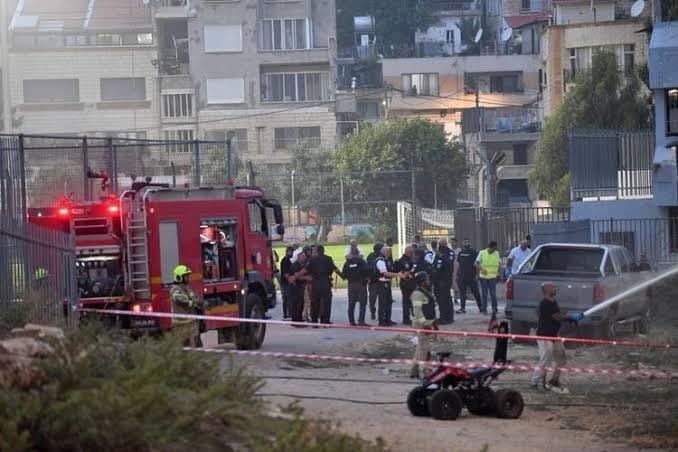Israel pledges strong response against Hezbollah after deadly rocket attack

Israel has announced on Sunday its intention to launch a significant retaliation against Hezbollah, holding the Iran-backed group responsible for a rocket attack that killed 12 children and teenagers on a football field in Majdal Shams, a village in the Israeli-occupied Golan Heights..
Hezbollah has denied any involvement in the Majdal Shams attack, claiming no connection to the incident and dismissing Israel’s accusations as false. The football field was struck on Saturday evening. While Hezbollah had earlier declared the firing of rockets at Israeli military sites, it swiftly distanced itself from the attack on Majdal Shams, stating, “it had absolutely nothing to do with the incident.”
Prime Minister Benjamin Netanyahu cut short his visit to the United States and was expected to return to Israel on Sunday. He planned to convene his security cabinet to formulate a response. Meanwhile, grieving families in Majdal Shams gathered for the funerals of the victims. This territory, captured from Syria in the 1967 Middle East war, is annexed by Israel, although the move remains unrecognized by most countries.
An Israeli military spokesperson stated that forensic evidence identified the rocket as an Iranian-made Falaq-1. Israel’s foreign ministry directly accused Hezbollah, asserting, “Contrary to its denials, Hezbollah is the entity that is unequivocally responsible for yesterday’s massacre. The rocket that murdered our boys and girls was an Iranian rocket, and Hezbollah is the only terror organization which has those in its arsenal.”
Following the attack, Israeli Defense Minister Yoav Gallant visited the site, vowing a strong military response. “We will hit the enemy hard,” Gallant declared. The Israeli military confirmed that the rocket was launched from an area north of the village of Chebaa in southern Lebanon.
In retaliation, Israeli forces conducted several aerial strikes on towns in southern Lebanon and the eastern Bekaa Valley. According to Lebanese security sources, these attacks continued into Sunday morning. The Israeli military announced that it had targeted various Hezbollah positions deep within Lebanon but noted that any large-scale operations would likely need the security cabinet’s approval.
The United States, leading diplomatic efforts to de-escalate the conflict, condemned the attack as horrific but refrained from directly accusing Hezbollah. A statement from the White House emphasized unwavering support for Israel’s security and called for an end to the violence along the Blue Line, the demarcation between Lebanon and Israel.
The United Nations also urged maximum restraint to prevent further escalation. Jeanine Hennis-Plasschaert, U.N. Special Coordinator for Lebanon, and Lt. Gen. Aroldo Lázaro, UNIFIL force commander, warned that increased strikes could trigger a broader conflict, potentially engulfing the entire region.
The conflict has already displaced tens of thousands of people in both Lebanon and Israel. Israeli strikes have reportedly killed approximately 350 Hezbollah fighters and over 100 civilians, including medics, children, and journalists. The Israeli military reported that 23 Israeli civilians and at least 17 soldiers have been killed in Hezbollah attacks since October.
Iran issued a warning to Israel against any “new adventure” in Lebanon, with Foreign Ministry spokesperson Nasser Kanaani emphasizing the potential consequences.
Hezbollah, the most powerful of Iran-backed groups in the Middle East, opened a second front against Israel shortly after the October 7 Hamas assault. Other groups, including Iraqi factions and Yemen’s Houthis, have also launched attacks on Israel. Additionally, Hamas and the Lebanese Sunni group Jama’a Islamiya have fired rockets from Lebanon.
The Golan Heights, home to over 40,000 people, more than half of whom are Druze residents, remains a highly sensitive area. The Druze community, an Arab minority practicing an offshoot of Islam, has found itself at the center of this escalating conflict.












